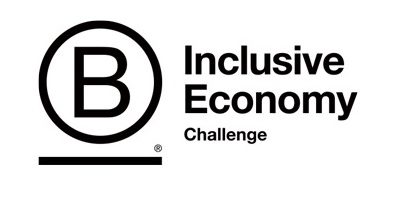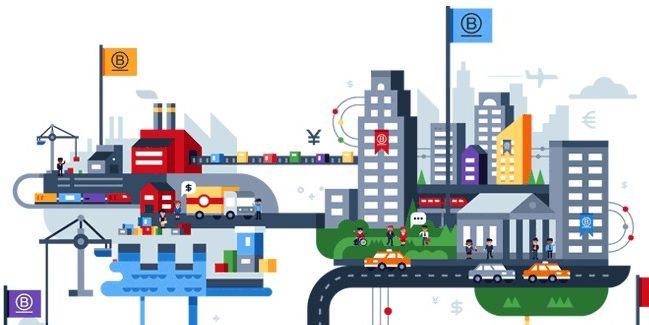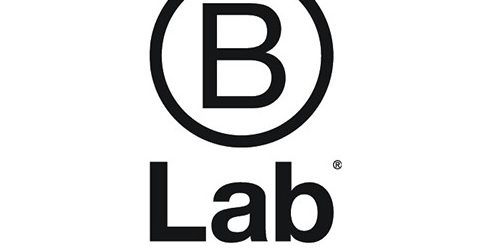Section 2: Benefits of Becoming a B Corp
View section summary, discussion prompts, activities and resources and more for Section 2: Benefits of Becoming a B Corp of The B Corp Handbook Instructor's Guide.
Summary
Approximately 35 minutes reading time
The benefits of becoming a Certified B Corp vary depending on a company’s industry, goals and objectives, and where a company is in the life cycle of their business. Companies can attract and retain talent, be distinguished in a crowded market, and associate their brand with some of the most socially and environmentally responsible companies. Through the use of the free-to-use B Impact Assessment (BIA), companies can directly measure the impact that they have on their workers, community, environment, customers, and governance, allowing them to identify their strengths and areas where they can improve performance. Initially, the BIA measured companies on a scale from zero to 200 points. The ceiling of 200 points was removed in a newer version of the BIA, released in January 2019. Companies receive certification with a verified BIA score of 80 or higher. The BIA can help companies save time and money by serving as a guide for their CSR reporting requirements.
Being Part of a Global Community of Leaders (page 39)
Many B Corps cite the strength of the global community— and the sense of being part of something bigger than an individual business—that has become the most deeply fulfilling aspect of B Corp certification. While the B Corp movement started in the United States, there are now more B Corps based outside of the United States than inside.
Attracting Talent and Engaging Employees (page 46)
Research shows that millennials are looking for more than work-life balance, which means having enough time and energy to enjoy life outside of work. They also are looking for work–life integration, which means applying themselves to something that they feel passionate about, so that they can fulfill both an economic need and a need for a higher purpose. Becoming a B Corporation can help attract, retain, and engage employees.
Increasing Credibility and Building Trust (page 48)
Consumers increasingly want more than an environmentally friendly product. They want to know what kind of company stands behind a product or service. B Corporation certification can help companies build credibility and trust in their brand because it is an independent and rigorous third-party standard that evaluates every aspect of a business.
Benchmarking and Improving Performance (page 51)
Many B Corps report that one of the biggest benefits of the certification process is the B Impact Assessment, a free tool that measures the social and environmental performance of the entire company. This enables any business to measure the impact its operations have on its workers, community, and the environment; to compare itself to industry peers; and to measurably improve performance over time.
Protecting a Company’s Mission for the Long Term (page 52)
Certified B Corporations amend their governing documents to be more supportive of maintaining their social and environmental mission over time. This expanded legal protection for a company’s mission is particularly relevant in succession planning. By becoming a B Corporation, entrepreneurs can protect their mission by elevating their company’s core social and environmental values to the status of law, meaning that new investors and a new board would be obligated to consider both shareholders and stakeholders when making decisions in the future. This helps ensure that such a company will continue to benefit society and the environment for the long term.
Generating Press and Awareness (page 55)
The B Corporation amplifies the voice of this diverse marketplace through the power of a credible unifying brand that stands for a better way to do business. In addition, using the power of business to solve social and environmental problems is a positive, innovative, and compelling story that has generated, and continues to generate, a high level of media interest.
Discussion Prompts
- Describe the culture of the global B Corp community and specific characteristics of regional networks.
- Will scaling the B Corp movement help to make access to sustainable products and services more equitable? Why or why not?
- How do B Corp values align with issues specific to diversity, equity and inclusion?
- Can you think of other benefits to become a B Corp not described in this section? In your opinion, what is the most important aspect of certification and why?
- What are some of the barriers to multinationals becoming certified? Maintaining certification?
- How do you think the benefits discussed in this section are different in a startup vs. small /medium business vs. a multinational corporation?
“Every entrepreneurship class should be incorporating the foundations of this guide on B Corps and the benefit corporation model into its curriculum. Its concepts are fundamental for the sustainability of the organization and of the world. Profit-driven only companies are no longer ‘business as usual’, a company must also understand its obligations to its stakeholders to thrive.” – Rosanna Garcia, Walter Koch Endowed Chair of Entrepreneurship, University of Denver
Go Further…
Case Discussions
To B or not to B? The Journey of “Coding Autism” Toward the B Corp Certification Ballesteros-Sola, Morgan Stickney, Yvette Trejo. Entrepreneurship Education & Pedagogy. Volume 1 Issue 2, April 2018. “This case is based on Coding Autism, a limited liability company founded in April 2017 and located in Westlake Village (California). The case features the decision process followed by the cofounder, Oliver Thornton regarding the opportunity to seek B Corp certification.”
Positively deviant: Identity work through B Corporation certification, Matthew G.Grimes, JoelGehman, KeCaoDespite, Journal of Business Venturing, Volume 33, Issue 2, March 2018, Pages 130-148. “Despite widespread and growing public interest in sustainability certifications, many social entrepreneurs have opted not to obtain such certification. Drawing on recent studies highlighting the salience of both gender and context in shaping differences among social enterprises, we develop an identity-based framework for explaining heterogeneity in the adoption of sustainability certification.”
Inclusive Economy Challenge
The Inclusive Economy Challenge is a call to action for the community of Certified B Corporations to improve our collective impact and move toward a more inclusive economy. B Corps sign on to participate by committing to making at least three measurable improvements from the Inclusive Economy Metric Set developed out of the B Impact Assessment. Identify a B Corp that has participated in the Inclusive Economy Challenge and write a reflection based on the results of the Inclusive Economy Challenge.
- Individual outside of class
- 1-3 hours
B Corp Stakeholder Engagement Interview
Explore the B Corp Directory to find certified B Corps in your area. Select one company to conduct a brief 30 minute interview. Questions might include: Does being B Corp certified help you attract and retain employees? Do you find it provides an opportunity for differentiation in your industry? Have you used the assessment as a roadmap to benchmark and improve your social and environmental performance? Has certification helped you protect your company’s mission over time? Has it strengthened your brand awareness? Are you more likely to do business with other B Corps compared to traditional companies? Write up a brief profile of the company based on the responses.
- Individual or group projects outside of class
- 2-3 hours
Decertification Article
Well-recognized brands like Warby Parker, Etsy, and The Honest Company have recently given up their B Corp certification. Select a B Corp that has decertified and write an article outlining the factors influencing that strategic decision.
- Individual outside of class
- 2-3 hours
Living Wage
Calculate the living wage in your area then write an article with relevant information about your interpretation of your findings
- Individual or group projects outside of class
- 3-4 hours
Resources
Articles
The Business Case for Caring – A Helio Analysis of Certified B Corps Circle Up, William Dowling, June 1, 2018.
- How B Corps are meeting the needs of people who want to know about the source of their products.
Mission Driven Business? Here’s Why To Become A B Corp, According To Four Certified Companies Forbes, Sara Weinreb, April 30, 2018.
- Certified B Corps have taken the extra commitment to make the internal and external values of their company valuable and positively impactful.
Social Seal of Approval Lures Talent: Employers Tout Their B Corp Label as a Credential to Compete for Young Hires Wall Street Journal, Lindsay Gellman and Rachel Feinzeig, November 12, 2019.
- Job seekers, specifically millennials, are seeking employment with companies who place a high value on social impact.
It Pays to Become a B Corporation Harvard Business Review ($8.95), Richard Stammer, December 6, 2016.
- Explores how becoming a B Corp can help attract new consumers, provide opportunities for cost-savings, and attrack to top talent.
Benefit Corporation and L3C Adoption: A Survey Social Entrepreneurs Newsletter, Kate Cooney, Justin Koushyar, Matthew Lee, and Haskell Murray, December 5, 2014.
- “New research offers insights into how social enterprise legal forms are emerging in the United States.”
The Surprising Competitive Advantage of the B Corp Huffington Post, Shane Paul Neil, December 6, 2017.
- How being a certified B Corp can make a company more ethical, provides a marketing vantage, makes a company more appealing to investors, and connects companies with the B Corp community.
B Corps on the Rise, Nikkei Asian Review, Makoto Kajiwara, June 30, 2016.
- How the values of B Corps have been needed for many years and are now a guiding way to grow an economy.
Building the Assets of Low and Moderate Income Workers and their Families: The Role of Employee Ownership, Joseph Blasi and Douglas Kruse, Rutgers School of Management and Labor, March 2019.
- “The research by the Rutgers Institute for the Study of Employee Ownership and Profit Sharing suggests employee ownership can reduce wealth inequality in the U.S.”
Videos
Jay Coen Gilbert, TedTalk – On Better Businesses, Dec 1, 2010, (19:35) “Jay Coen Gilbert shares his vision to harness the power of business to solve society’s problems through B Corporations — a new standard labeling socially and environmentally responsible companies. B Corps will help corporations be profitable while solving society’s problems.”
Why Seventh Generation is a B Corp, April 16, 2012 (4:47 mins), Jeffery Hollender explains why Seventh Generation is a Certified B Corporation.
Comet Skateboards, April 10, 2012, (2:30 mins), Comet’s core mission to provide sustainable skateboards and how their values to be have a positive impact in the community align with the values of B Corporations.
gDiapers: 50 Million Reasons to Give a S#!T – Decomposable Diapers, Real Leaders – ShortCuts, July 27, 2016 (2:37) – Problem: 50 million diapers a day go into landfills. Solution: Decomposable quality diapers.
100% Package Free Plastic Store: NADA Grocery – Bottling Up Plastic Pollution, Real Leaders – ShortCuts, July 24, 2017, (2:30) – Problem: Plastic waste bags at grocery stores. Solution: Package free plastic store.
Podcasts
Next Economy Now Podcast, Ep. 137: Leah Penniman: Farming While Black, (59:14, Nov 27, 2018). Leah Penniman, author of “Farming While Black: Soul Fire Farm’s Practical Guide to Liberation on the Land,” talks with Andrew Baskin and shares with him stories of unquantifiably valuable moments of healing of intergenerational trauma through relationship with land for people of color.
Next Economy Now Podcast, Ep. 86: Jonathan Rosenthal: Transforming Stories of Oppression Into #NowWeOwn, (43:07, Oct 31, 2017). Jonathan Rosenthal, Executive Director of the New Economy Coalition, speaks with Ryan Honeyman about his journey from a consumer co-op movement to challenging systemic oppression before ultimately moving on to the New Economy Coalition. He also shares his leadership advice around becoming a lifelong learner and shares his perspective on the current state of systemic racism and the Trump era and how to engage in healing and building work within that context.
Next Economy Now Podcast, Ep. 6: Jenny Kassan: How Women Entrepreneurs can Raise Mission-Aligned Capital, (39:44, Jan 6, 2016). Jenny Kassan, founder of LIFT Economy Law, describes how mission-driven women entrepreneurs can raise the “right” types of capital from investors. She also discusses different funding routes and how crowdfunding rules are creating more opportunities for women entrepreneurs.
Next Economy Now Podcast, Ep. 41: Andrew Baskin: Reflections from a Next Economy Millennial, (52:58, Oct 16, 2018). Andrew Baskin, a LIFT Economy Fellow, represents a core constituency of young, passionate, and activated social entrepreneurs that are helping use business as a force for good. In this conversation with Ryan Honeyman, Andrew and Ryan touch on a wide range of topics, such as leveraging sweat equity & resourcefulness instead of financial capital, current benefits & drawbacks for Next Economy millennials in higher education, and valuing the knowledge systems and intellectual capital of marginalized cultures.
Soup-To-Nuts Podcast: B Corp certification can help companies connect with conscious consumers (23 mins). “Conscious consumerism continues to rise in America with more shoppers saying they want to reward companies that “do good,” unfortunately for companies that are embracing this trend a recent survey found many people don’t know how to find socially responsible products or determine which companies to support.”
What Works with Tara McMullin: EP 132: Choosing The B Corp Life with Buzz Food Truck Founder Michael Sirianni (43 mins). “[W]e welcome Michael Sirianni, owner of Buzz, a mobile rock-and-roll inspired sandwich shop serving the Lancaster, Pennsylvania community. But Buzz is about so much more than egg and cheese sandwiches: as a B Corp certified business, Michael runs his restaurant-on-wheels a bit differently than most.”
That Supplement Show: EP 15: What’s It Mean to Be a B Corp? (29 mins). “Chances are good that you’ve encountered the “circle B” seal before… but, do you know what it stands for? Learn why businesses are lining up for a chance to B the Change, and understand just what it means when you choose goods and services boasting that capital B.”
BDC Podcasts: B Corp Effect (25 to 35 mins). “B Corp entrepreneurs are redefining business success. They use their profitable businesses to have a positive impact on their communities, their employees and the environment. Listen to their inspiring stories.”
How I Built This, Ben & Jerry’s / Unilever, November 20, 2017 (58:35 mins), Guy Raz explores stories behind some of the world’s best known companies.
How I Built This Podcast, Patagonia, December 12, 2106 (27:16 mins), Guy Raz explores stories behind some of the world’s best known companies.
Other Resources
Overview of Changes in Version 6 of the BIA, B Lab. This document provides a list of the key topics that have been approved for changes from Version 5 of the B Impact Assessment to Version 6, scheduled for launch in January 15th, 2019.
Ethical Capitalism: Shibusawa Eiichi and Business Leadership in Global Perspective, Book available for purchase, ISBN-10: 1487501064, ISBN-13: 978-1487501068, Mr. Eiichi Shibusawa, who established over 500 companies, believed companies cannot survive without society, Ethical Capitalism is a volume of essays that tackles the thought, work, and legacy of Shibusawa Eiichi and offers international comparisons with the Japanese experience. Eiichi advocated for gapponshugi, a principle that emphasized developing the right business, with the right people, in service to the public good.
B Lab Regional Websites
Section 3: The B Impact Assessment



